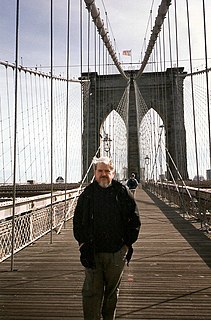A Quote by Annie Besant
The misery we inflict on sentient beings slackens our human evolution.
Quote Topics
Related Quotes
Evolution explains our biological evolution, but human beings are very unique creatures. As the Dobzhansky said, all animals are unique; humans are the uniquest. And that uniqueness of being human, language, art, culture, our dependency on culture for survival, comes from the combination of traditional biological evolution.
There is no limit to suffering human beings have been willing to inflict on others, no matter how innocent, no matter how young, and no matter how old. This fact must lead all reasonable human beings, that is, all human beings who take evidence seriously, to draw only one possible conclusion: Human nature is not basically good.
To our human minds, computers behave less like rocks and trees than they do like humans, so we unconsciously treat them like people.... In other words, humans have special instincts that tell them how to behave around other sentient beings, and as soon as any object exhibits sufficient cognitive function, those instincts kick in and we react as though we were interacting with another sentient human being.
Veganism is about nonviolence. It is about not engaging in harm to other sentient beings; to oneself; and to the environment upon which all beings depend for life. In my view, the animal rights movement is, at its core, a movement about ending violence to all sentient beings. It is a movement that seeks fundamental justice for all. It is an emerging peace movement that does not stop at the arbitrary line that separates humans from nonhumans.
Land mines, torture equipment, cluster bombs, chemical weapons are weapons designed to inflict pain and death on human beings. Most victims are civilians, women and children. How can arms manufacturers, weapons designers, plant managers, politicians, who have families of their own whom they love, be so insensitive when it comes to the suffering of other human beings?







































